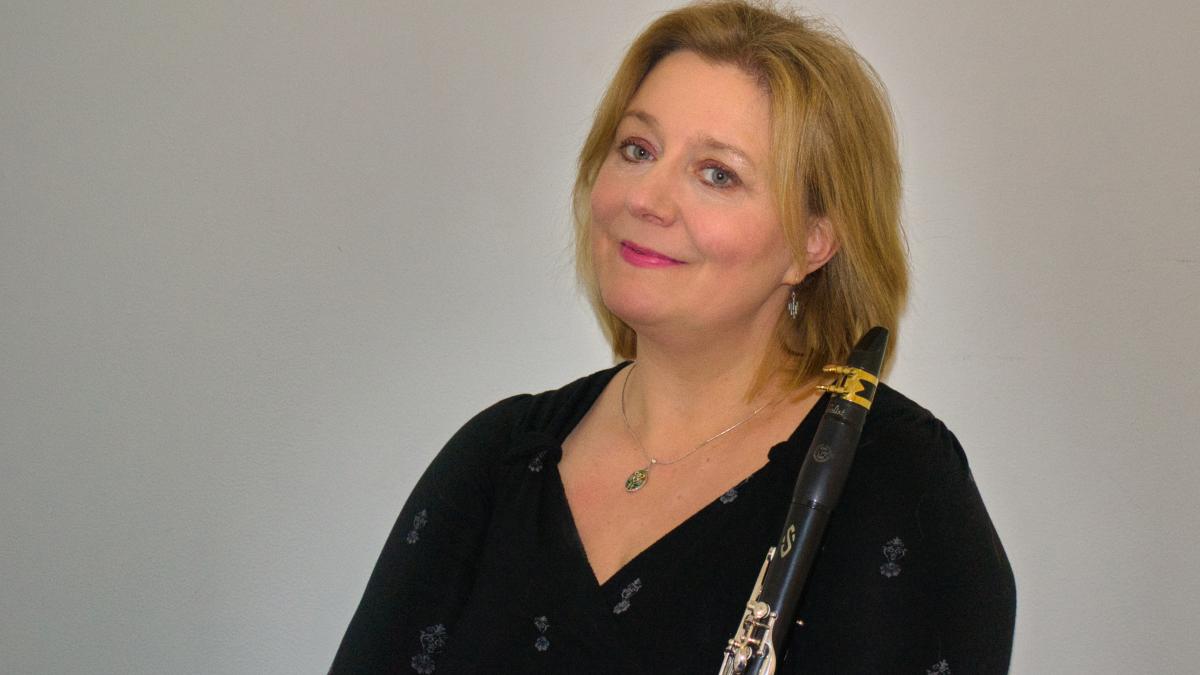Researcher Anne Elisabeth Piirainen: Peace is not a self-evidency but requires active efforts to be maintained
Musician, researcher Anne Elisabeth Piirainen is involved in organizing the Perspectives on Music in times of War symposium at the Sibelius Academy from November.

How did you become interested in the role of music in crisis and wartime?
I have been disseminating and performing music from the former Soviet Union, with the focus on repertoire by composers with Jewish roots, for a long time, and I have written about the impact of war on music from a historical perspective. Russia’s invasion of Ukraine was a profound shock to me personally as well, and in a sad way, it showed how closely the past and present are intertwined.
The significance of music during wartime and peacetime has been variable – sometimes greater, sometimes lesser, usually somewhere in between, often “written somewhere between the lines”. As there are no unequivocal answers to these questions, we attempt in the symposium to expand on different perspectives through presentations and performances. To my taste, playing music together could serve as a good metaphor for the conclusion that the most important goal is building and maintaining peace, after all: if the members of an orchestra or ensemble would not listen to each other, or if each wanted their own voice to be heard the loudest above all others, or if they could not find a common interpretation, the result would be useless.
In your opinion, what is the significance of music in the larger context of war and peace?
Music has been used for different purposes during war times, for example to comfort or to cheer up, as representation of war, as tool for propaganda or resistance. Music is a channel for us to encounter and process the world surrounding us. We are all reacting to events in our own way, and music is a language that helps us understand and process our emotions. Music transcends borders and languages and can remind us of what is truly important in life.
Who is behind the research project that is organizing the Perspectives on music in times of war symposium?
Behind the ongoing EU project “Music, War and Peace in Europe 1922–2022” is the French organization Forum Voix Etouffées. The symposium is organised by the Uniarts Research Institute`s History Forum, and Sibelius Academy. The event is funded by the European Commission (“Citizens, Equality, Rights and Values” Programme – CERV-2022, call “ European Remembrance“) and the University of the Arts Helsinki.
One of the main goals of the project is to emphasize the importance of remembrance culture in the contemporary world and to disseminate the creative work of the victims of totalitarism. Throughout the year 2023, various events on the subject have been organized in fifteen European countries, including concerts, scholar conferences, and exhibitions. The two-day symposium in Helsinki is the final culmination of the project.
What would you particularly highlight about the content of this event?
The event is built on the crossroad of arts and scholarship, as well as on interaction. The program is divided into various theme sessions, in which musicians and scholars from Finland and abroad together reflect on topics of music, war and peace from different perspectives. Also, we are inviting Sibelius Academy students and the audience to participate actively in the discussions.
For the final concert, we selected works which were composed during World War 2. In the program one could point out, how different the reflections on war events are by Einar Englund, when composing his Piano Quintet in 1941, by the Ukrainian Borys Lyatoshynsky in his Piano Preludes from 1943, or by the Jewish composers Mieczysław Weinberg and Marc Lavry, when composing their clarinet- and chamber music works in 1945.
What message would you like to convey to people in this time through the event?
The happenings in this world affect us all; they do not pass by anyone without leaving a mark. I would like to hope that we were able to listen to different viewpoints and consider questions both from our own and from the other´s angle. How we could employ the experiences and messages from previous wars – in the symposium with the focus on World War 2 – to build a better contemporary world. How the remembrance of the suffered traumata and the tragedies of the concentration camps, of the rise of nazism and fascism, could possibly guide us to better respones to the challenges we are facing in the present world. How remembering might help us in making right decisions, both on a small and a large scale. I would like to convey that we must remain alert even in countries where there is peace. And that we were able to appreciate that peace, which is not a self-evidency but requires active effort from all of us to be maintained.
Perspectives on music in times of war -symposium is organised at the SIbelius Academy, Uniarts Helsinki on 20 and 21 November 2023. Pre-registration is required.